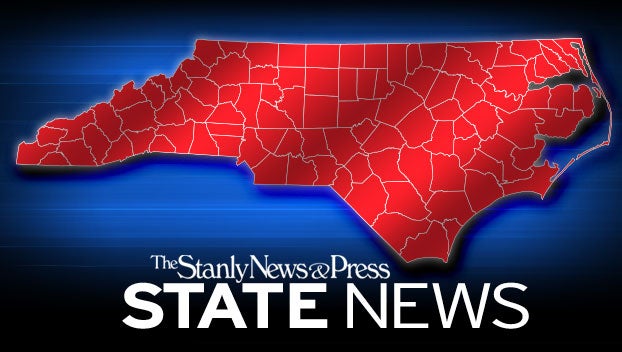STATE: Elon Poll finds North Carolinians concerned about spike in housing prices
Published 10:54 am Wednesday, October 27, 2021
|
Getting your Trinity Audio player ready...
|
The survey conducted Oct. 15-17 found that 44 percent say housing prices are “much higher” than two years ago and 41 percent say if they were looking to buy or rent in their area today, they could not afford their current residence.
The Elon University Poll has found that more than 80 percent of North Carolina residents say housing prices have increased during the past two years, including 44 percent who say housing prices are “much higher.” That has many North Carolinians skeptical that they could reasonably afford their current residence if they were looking to rent or buy in their neighborhood today.
The new survey findings come as housing prices have spiked in many areas nationally, with new listings sometimes lasting on the market for only days and sale prices sometimes outpacing asking prices. North Carolina is no exception, with the Triangle and Charlotte markets recently ranking within the top 10 housing markets nationally, according to the Emerging Trends in Real Estate 2022 report from the Urban Land Institute. The Elon Poll found that 55 percent of North Carolinians say they believe their local housing prices will continue to increase during the coming year while 32 percent say they will stay the same and 13 percent say they will decrease.
“North Carolinians in all areas of the state are overwhelming reporting that they are noticing the rise in housing prices,” said Jason Husser, director of the Elon Poll and associate professor of political science. “Few expect this trend to change. However, many disagree on whether the increase is a good thing.”
However, those trends have also impacted affordability as housing costs remained steady during the early pandemic and then soared as the economy reopened. Seventy-two percent of North Carolinians worry that the housing cost trend during the last two years will bring higher taxes. Additionally, 25 percent of North Carolinians say they were somewhat or very worried about missing a rent or mortgage payment during the past six months.
The Elon Poll also explored opinions about a range of policies that have been proposed to address housing issues. The poll found widespread support for a policy that would restrict major corporations from buying large numbers of properties and for a policy that would encourage employers to provide financial support for employees to live locally. North Carolinians were overwhelmingly supportive of providing incentives to developers to build affordable housing. Support was lower for allowing the free market to deal with housing costs and for increasing spending to support housing costs, and a majority were opposed to changing zoning laws to allow more houses per acre.
The survey of 1,234 N.C. residents was conducted using an online opt-in sample marketplace. The survey has a credibility interval of +/- 3 percent. The credibility interval is an accuracy measure for opt-in online surveys. A fuller explanation of the credibility interval and the survey methodology are available in the full report.
The survey was conducted by the Elon Poll in partnership with The Raleigh News & Observer, Charlotte Observer and The Durham Herald Sun.
Should I stay or should I go?
Beyond looking into what North Carolinians think about recent changes in housing costs, the Elon Poll also asked about what they have considered in terms of remaining in their current residence, investing in their properties and whether owning a home is still a good way to build wealth.
North Carolinians are split about whether to remain in their homes or find a new residence, with 52 percent saying they have not considered moving during the past year and 48 percent saying they have. What about perusing housing listings in the local area? More than 40 percent say they look at listing for places for sale or for rent at least monthly, with 14 percent saying they look weekly and six percent saying they look daily.
“Not surprisingly, most North Carolinians who currently rent see increased housing costs as a bad thing,” Husser said. “Similarly, those who have considered moving this year are less positive about the changes. However, I would typically expect people to be happy when economic trends mean their net worth has increased. When it comes to housing prices and resultant increases in home equity, responses are less clear-cut for many North Carolina homeowners. A plurality of North Carolina homeowners say they see a price increase as a bad thing. Part of this can be explained by worries about increased taxes.”
The Elon Poll found that 41 percent of North Carolinians say that if they were looking to buy or rent a house in their area today, they do not believe they could reasonably afford one compared to 59 percent who say they could. Older adults were more likely to say they could not afford one than younger adults and White adults were more likely to say they could not afford one than Black adults. Women and residents of urban areas were more likely to say a home in their area would be financially out of reach. There was no difference in responses based upon whether a person was renting or owned their home.
The survey found mixed results on how the pandemic and the associated increases in construction costs impacted planned home improvement projects. Fifty-three percent say they did not put off home improvement projects due to construction costs while 47 percent say they did. Results were similarly mixed when North Carolinians were asked about how housing prices impacted investing in their homes, with 56 percent saying changes in prices did not motivate them to invest more money into their homes and 44 percent saying it did prompt such an investment.
Homeownership is still roundly considered to be a good investment, with 82 percent of North Carolinians saying owning a home is a good way for families to build wealth and 18 percent saying it is not.
Taking action
The Elon Poll looked at support among North Carolinians for policies that might impact housing issues in the state, and how that support varied by political affiliation.
Policies that might encourage employers to provide financial support for employees to live locally along with policies to provide developers to build affordable housing both enjoyed the highest level of support, with 81 percent of North Carolinians supporting both. Looking at political affiliation, the Elon Poll found that support for both policies was higher among Democrats (91 percent and 90 percent, respectively) than among Republicans (73 percent for both), with those belonging to neither party falling in between.
Republicans were most supportive of allowing the free market to deal with housing costs without government involvement, with 77 percent supporting such an approach compared to 57 percent of Democrats and 65 percent of members of neither party.
Increasing government spending to support housing costs was one of the least popular policies among those the Elon Poll asked about, and also the one that saw the greatest divide between Democrats and Republicans. Overall, 61 percent of North Carolinians supported such a policy, with 81 percent of Democrats offering their support and just 41 percent of Republicans, the poll found.
The two parties were closest together on restricting major corporations from buying large numbers of properties. Overall 77 percent of North Carolinians supported such a restriction with 82 percent of Democrats and 75 percent of Republicans offering their support.
“We found inconsistencies in how people viewed potential policies to address housing affordability,” Husser said. “For example, many of the same people who want a free-market approach also support incentives for developers. This indicates that many housing policy proposals are less ideological than other issues and have potential to be framed in a way to gain traction despite our polarized climate.”






